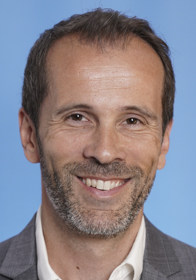 This year, you are scheduled to speak on an all-star panel about systematic trading. What are the key issues on this topic that you are hoping to address in the discussion?
This year, you are scheduled to speak on an all-star panel about systematic trading. What are the key issues on this topic that you are hoping to address in the discussion?
Put very basically, the state-of-the-art technologies and best practices in systematic trading. It’s important we address the issues around best practices that the industry and our peers are facing and ensure we are all heading down the same path. Taking that further, what is the road map going forward and what are the next steps? Which technologies are supposed to be involved in automation?
Automated workflows have clear benefits for participants as we have seen during the market volatility in 2020. But what risks do they hold?
The risks are held within the benefits and mirror them in many ways. As the workflow is automated, it’s on a no-touch basis and there’s no human intervention. The main element is to make sure that you have all the controls and checks in place to ensure risk doesn’t increase in more volatile periods. This includes hard and soft checks across automated workflows. For me, that’s the most important thing.
Can automated workflows minimise trading costs and slippage?
When we implemented automation at Amundi, the main purpose was to avoid negatively impacting our execution performance before we thought about adding any value. There’s scrutiny from clients to make sure we don’t adjust execution performance to minimise trading costs and slippage. Adding value and alpha in general, however, will likely be a part of the second phase of the future of automation. We could also potentially onboard more analytics on a pre-trade basis and customise the algorithms we apply in the automation process.
What role do you see automation playing in the future and are there areas that it could expand into?
I think that it’s going to be a big part of the whole landscape and automating more trading activity is a historical trend we are seeing. This doesn’t mean that automation will replace human beings in the process. It will become part of the must-have tools for trading desks. On the panel at TradeTech, I hope to have a further discussion about how we can demystify automation and realise that it is accessible to many asset managers.
In the future, the main concern about automation is around the ability to bucket your order flows. Lots of order flows can be automated, but once that first level automation is done, you need more pre-trade analytics and data to design your automation process, especially if you want to make changes, switch to another bucket, or automate more difficult buckets in terms of size and liquidity. With pre-trade analytics, you open the door to more sophisticated data processes like clustering for instance, which allows us to target the right strategies for execution. It’s the huge improvements in technology that allows us to improve the automation process.
Systematic trading and automation will likely be a hot topic at TradeTech. What other trends do you expect to hear about at the event this year?
There are many connected topics to automation, but that is going to be a central theme at TradeTech this year. The connected topics will be around all the data and the pre-trade data as I mentioned earlier that needs to be automated.
There’s also a huge focus on transaction cost analysis (TCA) on a post-trade basis because that becomes the justification for automation. Again, it’s important to make sure that automation doesn’t impact execution performance, but ultimately that TCA is feeding the decision process in automation.
The other topic is around regulation. To some extent regulation is pushing for a more quantitative approach in data and our processes. It’s very likely that we’ll see increasing scrutiny from the regulators about taking a more quantitative approach to these processes.
Which panels are you most looking forward to attending at TradeTech this year?
I’m most interested in best practices around automation and the use of TCA alone and for automation. It seems like regulation has been forgotten over the past few months because MiFID II is far behind us. Now though, we are starting to hear about the new versions of the regulations, like MiFID III. Any new layer of regulations will have an impact on the processes we put in place including automation, so I am keen to attend panels related to that.
You have attended TradeTech in the past, including virtual versions of the event. Why are events like TradeTech so important for the industry?
It’s important to raise questions with peers. I won’t pretend to have all the answers to the questions, but it’s a good occasion to make sure that we all share the same concerns and challenges.
Hopefully, we can get some insights and inputs from the industry and gain an understanding of the state of play to make sure we are not alone in dealing with these concerns. Given the challenges we have faced and the changing market landscape, not only in market structure and regulation but also tools and technology, it’s clearly improving tremendously. Sharing experiences through conferences like TradeTech or through articles, videos or a podcast is an amazing thing. Now more than ever, we need to share our experiences.